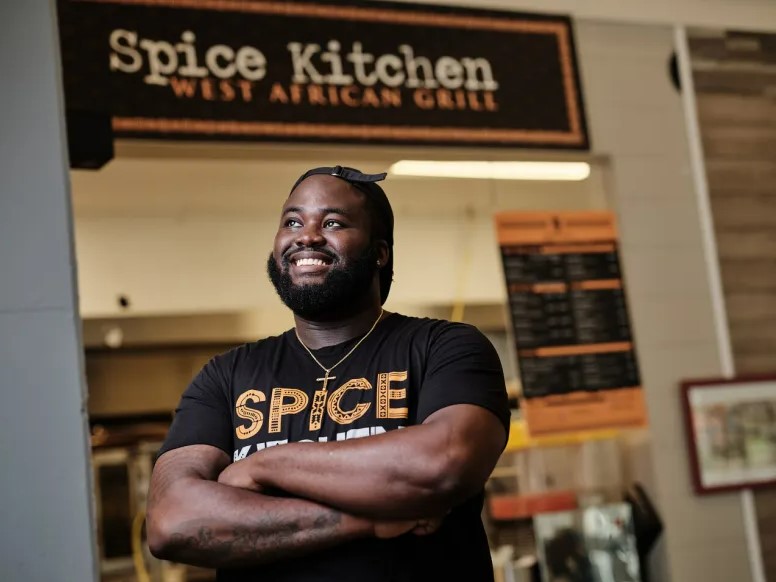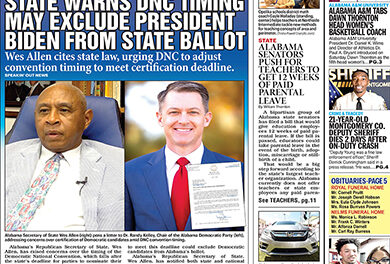By Megan Sayles,
AFRO Business Writer,
msayles@afro.com
D.C. Attorney General Brian Schwalb released a Supplemental Business Advisory underscoring the businesses’ legal responsibility to properly disclose all extra fees at the beginning of the month on Aug. 9.
The advisory aims to ensure restaurants know how to abide by D.C.’s Consumer Protection Procedures Act (CPPA), which bars a number of deceptive and unfair business practices. It provides concrete examples of compliant and non-compliant service fee disclosures on menus and checks.
“Under D.C. law, consumers have a right to accurate and complete information about prices and fees up front, before they make a purchase,” said a spokesperson for the Office of Attorney General (OAG). “Recently, consumers have expressed growing confusion and frustration about added restaurant fees—which they have expressed in complaints filed with our office, in online forums and at community events.”
“Widespread consumer confusion about restaurant fees prompted us to issue guidance,” said the OAG spokesperson. “The guidance is an alternative to immediate enforcement action—it is intended to inform and educate D.C. restaurants and give them an opportunity to get into compliance with the law. Of course, if businesses continue to violate the law moving forward, enforcement action is always on the table.”
The CPPA does not forbid restaurants from adding extra fees to checks, but it requires restaurants to disclose all service, wellness and restaurant recovery fees, in a timely, prominent and accurate manner.
The OAG’s advisory instructs restaurants to explain what service charges are being used for. The fee amount must be communicated to customers before they order and restaurants are prohibited from obscuring or burying the existence of the fees. The OAG suggested that restaurants disclose their service fee information in the same way that they convey their prices.
Under the CPPA, restaurants could be fined up to $5,000 per violation, according to the OAG.
“We have always felt that letting guests know about any fees before they order is not just an obligation, it’s also good business,” said Shawn Townsend, president and CEO of the Restaurant Association of Metropolitan Washington (RAMW), in a statement. “RAMW asked the attorney general for more specific guidance about service fees, and his office heard us. We appreciate his consideration and responsiveness and look forward to helping make sure this information gets into the hands of our community restaurateurs.”
Local restaurateur, Olumide Shokunbi, has used service charges since he opened Spice Kitchen West African Grill in Mess Hall, a culinary incubator space in Ward 5’s Edgewood neighborhood, in 2020.
“We started during the pandemic, and everything was just expensive. There was always some issue as far as cost of food and paper goods, and there were so many supply and labor issues,” said Shokunbi. “Being a new business, I had also just started understanding credit card processing fees. When you’re dealing with an economy where things are getting expensive and labor is a problem, you need some help to offset certain costs, especially in the restaurant industry.”
According to Capital One, credit card processing fees can range from 1.5 percent to 3.5 percent and differ depending on the credit card network. Shokunbi said the costs also vary depending on whether a customer swipes their card or enters their chip. He added that Visa typically have higher processing fees than American Express.
Spice Kitchen West African Grill, which has since moved to miXt Food Hall and now charges customers a 2 percent service fee. Shokunbi does not intend to increase it and said his current goal is to leverage technology to offset labor and other costs associated with his restaurant.
“For the restaurant industry, a lot of times it’s not even about getting rich off of these [charges]. It’s typically just to offset some costs that we have to take on,” said Shokunbi. “There’s only so much that you can keep pushing on price. It’s definitely not a greedy thing. That’s the misconception.”
Megan Sayles is a Report for America Corps member.
The post D.C. attorney general delivers advisory on restaurant service fees increases appeared first on AFRO American Newspapers .











